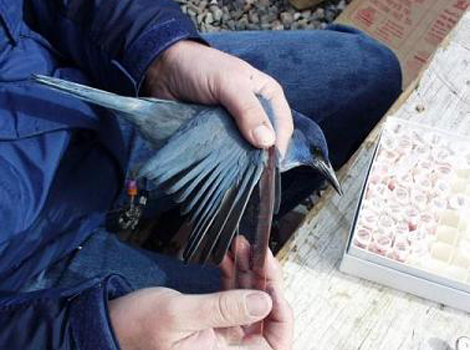Research
 ACL researcher measures the wing of a Pinyon Jay
ACL researcher measures the wing of a Pinyon Jay
The Applied Conservation Lab conducts field and laboratory research to understand the ecology, conservation, and management of imperiled species, degraded systems, and isolated populations. Lab members use observational and molecular techniques to understand community interactions, population trends, and implications of management interventions. Current research activity is focused on the southwestern United States and the islands of the western Pacific Ocean.
Current projects
1. Population dynamics of bird species affected by human activities
2. Disease transmission to domestic animals and humans from wildlife
3. Non-lethal management of feral equids
4. Non-invasive methods for surveying sensitive species
5. Community genetics of foundation species for restoration
Current projects
1. Population dynamics of bird species affected by human activities
Causes of Mortality of the Golden White-Eye
Effects of Hybridization Between Gilded and Northern Flickers
2. Disease transmission to domestic animals and humans from wildlife
Evaluating Coyotes as a Potential Dispersal Mechanism for the Vector of Rocky Mountain Spotted Fever
3. Non-lethal management of feral equids
4. Non-invasive methods for surveying sensitive species
Elemental Distribution in the Mineral Layer of Atlantic Tarpon Scales
A New Method for Detecting the Presence of the Endangered New Mexico Meadow Jumping Mouse
5. Community genetics of foundation species for restoration
Genetic Characterization of Seagrass in the Saipan Lagoon and its Effect on Community Diversity
Current projects
1. Population dynamics of bird species affected by human activities
2. Disease transmission to domestic animals and humans from wildlife
3. Non-lethal management of feral equids
4. Non-invasive methods for surveying sensitive species
5. Community genetics of foundation species for restoration